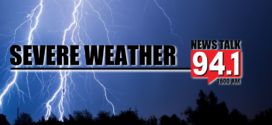Boat fires in the Upper Cumberland are a sign that we need to practice better prevention.
That according to TWRA Wildlife Sargeant Dustin Buttram. Buttram said the source of most boat fires is a lack of precautions with electrical systems and fuel systems. He said old personal water craft models like jet skis are know to leak fuel when they turn over with a probability of a fuel fire when the ignition is turned back on. He said large cabin boats with closed engines also have issues with electrical systems.
“A lot of times that electrical system is what can cause these boats to catch on fire,” Buttram said. “And obviously we’ve got fuel, and some of these bigger boats have a lot of fuel on those boats. And so it escalates pretty quickly from those small fires once they catch onto the fuel system.”
Buttram said the first prevention for boat fires is education. He said anyone born after January 1, 1989 has to undergo a boater education course to legally drive a vessel. He said you learn boat safety including fire prevention, when to take action, and when to abandon a vessel for your own safety.
Buttram said the second fire prevention method is the fire extinguisher which is required on all boats. He said in order to prevent fire spreading to highly flammable materials boaters should check their extinguisher gauges regularly and review how to use the extinguisher.
Buttram has practical advice for both the personal water craft and the large cabin boat.
“Go back to the smell test,” Buttram said. ” So flip the the personal water craft over and take the seat off. If you can see or smell any fuel when you take the seat off, you know not to start that vessel.”
Buttram said a couple of things to keep in mind on the large cabin boats is that the fuel tanks are closed in. He said unlike the motor vehicles we drive on the road that are constantly getting fresh air to the engine, the engines are closed off from fresh air.
“You turn those engines off when you’re fueling your boat up,” Buttram said. “Don’t have any equipment running. And do a quick smell test. We all know what gasoline smells like. And if you’re smelling fuel, you probably don’t need to be starting that engine.”
Buttram said a lot of boats that have the closed engine compartment also have a blower system. He said after you refill your boat, you turn that blower on and it will vent that area out to make sure there are not fumes trapped in the engine compartment.
Buttram said it is a good idea to retake the boater education course as technology changes and updates are made to the course. He said we also may not remember what we learned years ago.
“We definitely encourage people to take it again,” Buttram said. “It’s $10 to take it for your license. But if you already have a boater license you can sit through it for free.”
 News Talk 94.1/AM 1600 Where The Upper Cumberland Talks
News Talk 94.1/AM 1600 Where The Upper Cumberland Talks







